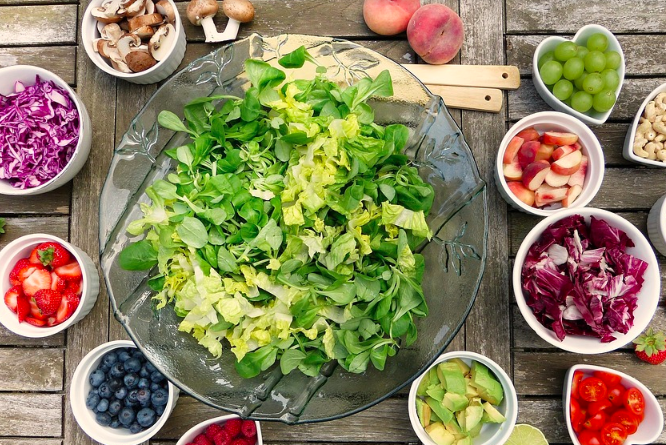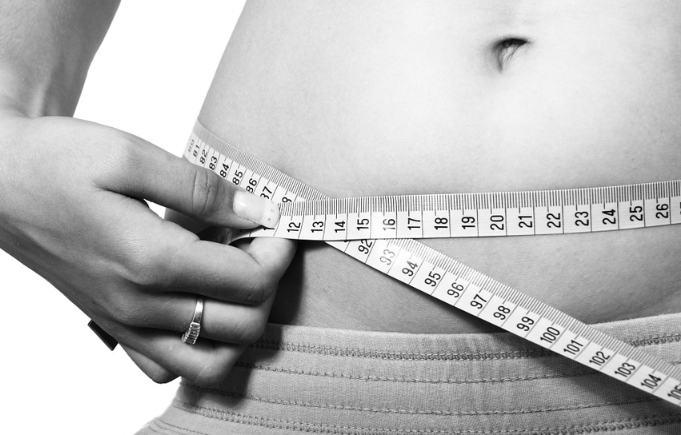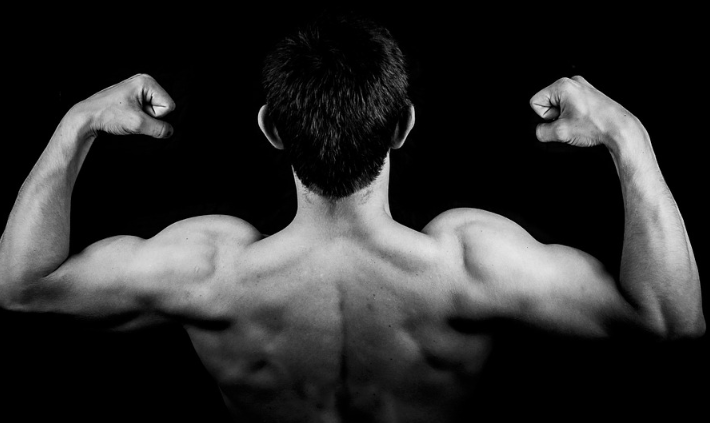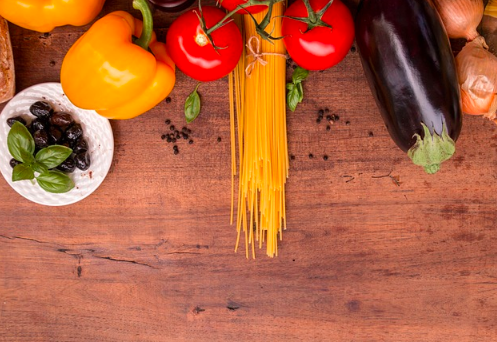Intermittent fasting is an eating routine that is gaining popularity around the world for it’s incredible benefits, and how easy it is to start!
I started intermittent fasting a few months ago, and I’ve got some pretty interesting results and experiences to share. I’ve also done a lot of research into this topic.
I’ll share what I’ve learned here, and then at the end, I’ll share how it went for me.
I have to say, there are some pretty unbelievable and really awesome benefits I’ve noticed from intermittent fasting, some of them are almost too good to be true. Things like:
- Increased energy and mental clarity
- Better digestion and muscle recovery
- Improved sleep and reduced stress
- Much less inflammation and less oxidative stress
- Much lower risk of heart diseases
- Can even help prevent cancer
- Can extend your lifespan?
- Increased human growth hormone (Great for muscle building if you’re also exercising)
- Insulin levels drop massively, causing you to burn fat.
- In the fasted state, your body repairs and grows muscle, drops your insulin levels and burns fat
- Reduced risk of type 2 diabetes
To be honest, there are actually more benefits, but they start to sound unbelievable.
Before going into more benefits, I just want to explain more about how it works and why it works so well on the body.
This is something I’m actually really excited to talk about because I’ve tried a lot of diets, eating habits and routines, supplements, etc. for various reasons, but this is the one that I have to say I’m going to keep doing, probably forever.
There aren’t many habits that make the cut like IF (intermittent fasting).
I’ve added intermittent fasting to a collection of super healthy and positive habits like:
- Meditation
- Writing my dreams down
- Drinking 2-3 litres of water a day
- Writing down five things I’m grateful for every day
- Reading my goals to myself every morning
- Exercising every single day
- Eating a plant-based diet of mainly fruits, vegetables, and healthy fats
And a bunch of others too. The point is, it’s made the cut because it’s so good! I feel amazing doing intermittent fasting, which for the sake of writing flow, I will sometimes refer to as IF from now on.

I really do feel better since I started doing intermittent fasting, and I think the benefits are here to stay.
I was wary that maybe the initial benefits were a placebo or something that happens when the body adapts to a new routine, but they weren’t.
After doing a lot more research and reading other people’s experiences as well, I can conclude that intermittent fasting is actually a very well-researched and proven health trend, which ANYONE can do and get benefits from.
What is intermittent fasting
So to start with, let’s explore what intermittent fasting actually is. Intermittent fasting is to fast or to put the body into a fasted state, at various intervals of time.
For MOST people who practice IF, this means to go into a fasted state about once a day or once per every 24 hour period of time. This usually looks like this:
- You are allowed to EAT between, say, the hours of 12 PM and 6 PM every day
- All other times, you’re NOT allowed to eat
Lots of people actually extend it and eat in an 8-hour eating window, from 12 PM to 8 PM, for example, hence the term 16/8 intermittent fasting.
This basically just means that you’re not eating for 16 hours of any 24 hours period, and eating for the other 8 hours.

Of course, you don’t have to eat for the entire 8 hours.
Most people, when they do this, will either stick to their usual 3 meals during those 8 hours or actually skip a meal entirely.
I would advise you to skip a meal entirely, and there are a few reasons for that, which we’ll get into later.
But intermittent fasting is essentially putting your body into a fasted state (I’ll explain the science behind this later too) for 16 hours out of every 24 hours, usually.
There are other variants of this, for example:
- 18 hours NOT eating, 6 hours EATING (This is what I practice, I’ll explain why soon)
- 20 hours NOT eating, 4 hours eating
- 14 hours not eating, 10 hours eating
Or you might have it split up into different days, for example:
- Mondays, Wednesdays, and Fridays you practice a 16/8 intermittent fast, and the other days you’ll eat normally at any time
- Or you might have any variation. I would say the easiest way of doing this and the best way of getting the MOST benefits, is to just do it every single day. I can’t think of many positive habits that aren’t BETTER when you practice them every single day.
This is no exception, and as long as you’re doing it properly, (I’ll get to that) there are no dangers for most people, and you’ll feel great doing it every day.
You won’t feel tired, or super hungry despite what you might think.
DISCLAIMER: None of this article is intended to be nutritional or health advice, and before changing ANYTHING about your eating habits, diet, or anything else.
You should do your own research, and consult your doctor. None of this is qualified advice, and I’m not responsible for anything that happens/comes as a result.
This is just my research and experiences.
But from my experiences, I’ve found that doing it every day gives the most benefits, and I feel the best when doing this.
I tried fasting only on certain days, and I found that the body just didn’t adapt and I always felt either too sluggish on the full eating days, or too hungry on the fasting days.
The body needs to be able to adapt, and the best way for it to do that is to make sure you practice IF every single day. That being said, you need to do it properly, and I’ll explain how to do that soon.
History and Culture
The history of intermittent fasting is a little unclear. Fasting in general has been part of our history for generations, right back to ancient times.
It has always been seen as a mainly spiritual practice, often linked with going inwards and learning more about yourself.
For example, it’s common in some religions to not eat on certain days or to go for periods of time up to 1-2 weeks without eating, during certain times of the year.

Another big thing to consider is that many people around the world and throughout history, have HAD to practice intermittent fasting, as they had no choice.
It’s actually quite a luxury to be able to have full, prepared cooked meals 3 times a day, every single day.
Most people take this for granted but think about all of the people around the world who don’t have that luxury.
They all practice intermittent fasting. In fact, breakfast was largely invented by a guy who sold/produced breakfast cereals (Hmm, funny that).
So the idea that we need to have 3 meals a day in order to survive is nothing more than great marketing by the companies that are selling those meals.
It’s not needed, and in fact, we can survive very well on two meals or even one meal a day or LESS!
We can actually go for several days without food, and if done properly, this has no side effects or bad effects on your body.
Now, I wouldn’t suggest going days without food, but intermittent fasting is something that is VERY easy to start doing, because all you really need to do to get started is to pick a meal to skip out on.
How does it work
Firstly, intermittent fasting doesn’t actually dictate WHAT you’re meant to eat, it just tells you WHEN to eat it.
This means you can get different results depending on what you’re eating when you actually do eat.
I would advise not only trying to start intermittent fasting but also eating the right foods. Things like healthy plant-based ideally vegan foods, will give you the best results.
I have another article about the benefits of going vegan but don’t expect to get GREAT results if you’re still stuffing yourself with cheeseburgers in your eating window. Intermittent fasting can only do so much for you.
That being said, it will still give you great benefits, even if you do NOTHING other than change when you eat the foods you’re already eating.
The act of putting your body into a fasted state every single day has amazing effects on your biology, the way you digest foods and utilize the calories, and a whole bunch of other things as well.
The way intermittent fasting works is by putting your body into a fasted state.
Our bodies are in one of two states at any one time:
- FASTED
- And FED or DIGESTING
Now when we’re in the digesting state, our mental powers are lower, our insulin levels are higher and we’re slower.
Also, and probably most importantly when you’re in the fed state, your body is going to use CARBOHYDRATES and sugars for fuel.
Not stored fat.
This means all the time you’re not fasting (for anyone who doesn’t practice intermittent fasting, this is almost all the time) you’ll NEVER burn the fat stored on your body, for fuel.
This means you’ll almost never lose that body fat without in some way, fasting.
When you’re in the fasted state however, you burn fat for fuel.
Specifically, you burn the fat stored on and around your body. Fat is actually one of the best fuels the body can use, and especially the brain. But they don’t tend to teach this, and I have no idea why.
Think about it this way:
You only ever either burn fat or store it.

The body can’t do both at the same time, so all the time you’re just eating, you’re stopping the body from ever burning the fat in the body stores.
So you actually REQUIRE fewer calories when you’re doing intermittent fasting, because your body burns stored fat for fuel as well!
The brain THRIVES when it’s powered by healthy fats and stored body fats. But it’s almost never allowed to use that type of fuel, because we always feed ourselves carbs, thinking that’s how we’re supposed to do it.
It’s like we have the ability to fuel our brains with rocket fuel, but instead, we’re using AA batteries (carbs).
Anyway:
When we’re in the fasted state, lots of interesting things happen in the body on a cellular level:
- Human growth hormone production is massively increased leading up to 24 hours (This is great for building muscle and maintaining mass)
- Insulin levels drop massively, reducing your risk of diabetes long term and also making your stored fats more easily accessible for burning! (You literally burn fat like fuel)
- Your cells repair themselves more efficiently by removing old, unused proteins
It’s great for weight loss as you can imagine, but it’s also not going to make you lose your muscle.
You’ll find it easy to keep muscle mass if you’re lifting weights, because of the added human growth hormone.
Also, if you make sure to still eat enough calories during your eating window, there will be no difference to your muscles (In fact they’ll probably get bigger).
Interestingly, in the fasted state, for brain produces more BDNF (Brain derived neurotrophic factor as well.
It’s just really, really good for your brain and body across the board.
What are the benefits of intermittent fasting
There are lots of benefits to intermittent fasting, too many to go over here, but here’s some main benefits:
- Makes your life easier: You need to worry about one less meal. This makes traveling easier and cheaper, and you’ll have more time
- You’ll lose weight: Across the board, people report losing body fat stored around their stomach and legs. You’ll also maintain or even grow muscles if that’s your goal!
- You’ll feel better: One of the first things I noticed when I started this, was how much better it felt not to load up with food first thing in the morning. By about 11 AM I felt incredible (In fact way before then I felt great)
- It avoids jet lag: By not eating in the morning or throughout your long-haul flight, you can actually avoid jet lag. Our ‘eating clock’ is more responsible for jet lag than most people think
- You can build muscle: Human growth hormone makes building muscle super easy. I know lots of people think that fasting is bad for muscle growth, but it can actually be the opposite
- It helps you live longer: By increasing your level of human growth hormone and eating one less meal, you can actually increase your life span!
- It reduces the risk of cancer: Limited studies here, but lots of subjective reports and a few small studies show this
- Much better/easier than dieting: Because you don’t need to worry about what you’re eating, you can just focus on WHEN you’re eating it. This makes it much easier to stick to and you can later add on a diet habit, or change what you eat as well
There are more but for the purposes of making this article a generic ‘cover it all’ type post, I’ll leave it at that and maybe write a specific benefits article later.
My personal fasting routine
So the routine I’ve been following for several months is this:
I’ll eat between the hours of about 12PM and 6PM. All other times I don’t eat anything. The ONLY thing I’ll have outside those hours is water, black coffee or lemon water.
This makes it very easy to travel because I don’t need to think about breakfast, not to mention making things cheaper as well.
I think this routine is great for digital nomads because of the travel benefits, and the energy you’ll get in the morning.

I regularly write thousands of words per day for my work, and I do this mostly first thing in the morning.
I often use nootropics to help me do this, but intermittent fasting has played a very big part in how much I’m able to get done.
For a while I used to down a HUGE smoothie first thing in the morning, thinking that’s what I needed to do to grow muscle or maintain my size.
I learned after researching how the body uses calories, that this just isn’t needed.
Not to mention the fact that I felt AWFUL for hours after that big calorie-fueled shake.
Now I don’t have any breakfast, and I’m able to focus and work for hours on end, with no mental fog or cloudiness.
I’m just able to create and get into the flow state, almost instantly.
So during my routine, when I travel sometimes there are exceptions to this, for example, if the people I’m with want to go out for an evening meal or I have a really big hike in the day and I need to fuel up before the hike.
I’d suggest eating before doing intense physical exercise, like hiking all day in the sun.
But you don’t have to, and in fact I’ve been able to do things like hiking without having breakfast. The key is to make sure you take it at a sensible pace and drink enough water.
It also takes your body a few weeks to adapt to not having food as fuel first thing in the morning.
Most people will try intermittent fasting only for a few days, and then conclude that they just ‘can’t go without breakfast’, or that they feel weak.
This might be true short term but as soon as your body has adapted you’ll be fine, more than fine in fact.
People have been going without breakfast for thousands of years, it’s really just a case of adapting to it or manning up.
Most of the hunger you feel is in your mind anyway, caused by a hormone called ghrelin.
Ghrelin is the hormone that makes you feel hungry, but if you just ignore the urges or cravings, it goes away fast.
In fact, after a few days or two weeks maximum, your ghrelin levels will adapt to your intermittent fasting routine and you’ll have got used to it.
My experiences with IF over 4-6 months
Over the course of the last 6 months or so, I’ve been intermittent fasting almost every single day.
There have been maybe 3-4 days during this whole time that I’ve eaten breakfast, and even on those days I’ve made up for it by STOPPING eating earlier in the day, at about 4PM.
So I have to say, overall I feel GREAT.
I have had more energy, my digestion has been better, and my muscles haven’t shrunk.
In fact I’ve put on some muscle and certainly gained some strength. I’ve been eating roughly the same amount of calories, which is strange.
You would think that in order to grow or maintain muscle you’ll need to eat more calories, right?
But no, I’ve eaten the same if not fewer calories on average, every single day.
I think this is because the body learns to burn the fat around your body for fuel, as well as maintaining muscle with the human growth hormone.

I’ve noticed that I never crave breakfast now, and even at the start, I didn’t really crave it either.
It took just a few days for me to adapt to this new habit, and it’s nowhere NEAR as hard as people make out.
I tell some people about this habit and they go crazy, telling me I’ll waste away, or get weak, or that I’ll faint without having a big breakfast. These things are simply not true, and mostly the cause of great marketing by cereal companies, and doctrines passed down by generations.
The idea, for example, is that in order to be big and strong, you need a big hearty breakfast.
It’s just not true. Sure, you need healthy strong foods, but WHEN you eat them doesn’t really matter that much. In fact I should say, it DOES matter, but it matters in the following way:
You need to arrange your eating so that you have a big fasting window in every 24 hour period.
This usually looks like the 16/8 intermittent fasting split but it can also be the others I spoke about.
This gives your body the best chance of secreting more human growth hormone, and USING the fat stored in your body as fuel.
My intermittent fasting results
My results from intermittent fasting have been good across the board.
At the start, it was difficult because I felt like I needed to eat lots more food during the eating window, and I actually ended up eating MORE than I usually did for the first few days.
Then I calmed down a bit and realized that you don’t need to do that. In fact, it’s very easy to eat the same amount of food in your eating window.
It often just means avoiding snacks during the morning or night and avoiding the breakfast you’re so used to.

In most cases, by the way, the breakfast you do have doesn’t really add much to your body or life. It’s usually a slice of toast or something, or cereal, which doesn’t even give you that many calories anyway.
It’s VERY easy to make up for those lost calories with a slightly bigger lunch.
Not to mention the fact that every single lunch now tastes 100 times better than it did before I started fasting because my body is hungry and more ready for the food.
This also aids digestion and makes your enzymes more effective, as if you need MORE benefits or reasons to start doing this!
Warnings about intermittent fasting
Okay so there are actually some warnings about intermittent fasting that I’d like to mention here:
- If you’re diabetic, you should consult your doctor before trying this. I honestly don’t know how diabetes works in most cases, and there are different types with different relationships to the hormone insulin. Check with your doctor.
- If you’re regularly engaging in physical activity, you might need to adjust your intermittent fasting so that you can fuel up with carbs and burn them off first thing, and then go into a fasted state later in the day. It will still work though!
- You might overeat: If you’re not ready for this or you panic at the start, you might overeat, thinking that you’re never going to have time to eat enough calories. Just calm down a bit and track your food and calorie intake. You’ll be surprised how easy this can be to actually do
- You might feel tired at first: It can be a big change to adapt to at first and you might feel tired. This is just while the body learns to burn fat for fuel in your fasted period of time
- You’ll get drunker: I don’t drink alcohol and most readers of this site don’t either but if you do, remember that drinking on an empty stomach will get you drunk faster, so be careful!
Hacking your body and mind
I think intermittent fasting is one of those things that really is bio hacking at it’s core. You’re deliberately eating in certain eating windows, to maximise human growth hormone and make the body and brain work better.
There are other ways you can bio-hack yourself, for example:
- Meditating every morning: Meditation has been proven by over a thousand studies to make you feel better, reduce stress, and lower levels of anxiety
- Try nootropics: I had a great deal of experience with nootropics over the course of about 6 months and documented it in this post. They’re basically smart drugs which have the ability to improve your cognitive function and make your brain function better
- Take ice baths: Ice baths are, as the name suggests, baths in ice-cold water. They can help reduce inflammation in the body and they’re great for improving your blood flow
FAQs about intermittent fasting
Here are some of the questions I see pop up about intermittent fasting again and again. I’ll do my best to answer them.
Can I drink during intermittent fasting?
Yes! In fact you should make SURE you drink enough water while you’re fasting because it keeps you healthy in a number of ways.
If you’re wondering about drinking alcohol, I wouldn’t recommend it, because you’ll get drunk faster on an empty stomach.
It also sort of undoes the good work you’re doing by fasting in the first place, so why bother? I would say that water is essential, however.
Make sure you’re drinking enough water, and if you want to, you can drink black coffee first thing in the morning.
Some people prefer not to drink coffee as it does make you feel more thirsty afterward, but it’s up to you.
I personally sometimes drink a black coffee while I’m fasting, but most times I’ll literally have nothing but ice-cold lemon water.
How much weight can you lose in a month of IF?
Well, probably a lot. Intermittent fasting forces your body to burn fat instead of carbs for fuel.
If you combine this fasting practice with regular exercise, the fat will fall away, and the muscle will stay or even grow.
It’s a great habit for those reasons, but you should make sure you’re doing it safely, and not cutting your calories too much.
You do need calories and food to survive, so make sure that you’re ACTUALLY eating, and eating enough during your eating window.
A good way of starting is to track your food intake, and just eat the same amount of foods you normally eat but in your eating window instead.
This is very easy to make this change for most people, as you’re not really changing much at all!
What can you eat or drink while intermittent fasting?
During the eating section of the fasting, you can eat anything.
I’d suggest just eating what you normally eat, as long as it’s not super unhealthy.
If you want to improve your diet as well, consider swapping to a vegan or plant-based diet, as it’s the best one for you.
But you can just eat or drink whatever you normally eat and drink! During the FASTING part of the 24-hour period, you shouldn’t eat anything of course but you can still drink things like water and coffee.
Depending on how strict you want to be, you can have milk in your coffee, but I would say don’t have coffee with milk.
Anything with calories will put your body back into a fed state, and you’ll burn the calories instead of your fat for fuel.
So make sure you’re not having anything except water and black coffee.
How often should you do intermittent 16/8 fasting?
You can do it every single day! I would suggest making it a daily habit because it’s really healthy! That being said if you’re finding that difficult, you could also just try doing it on certain days of the week.
You could for example just do intermittent fasting on Mondays, Wednesdays, and Fridays.
You could even only do it on weekdays, and then indulge in full big breakfasts on the weekends (when you likely have more time to make them anyway!).
I like to just do it every single day. I’ve researched the benefits and I see no reason to not do it every single day. It’s good to have those benefits and it’s also super easy to maintain this habit as well.
Once you’ve got used to eating at certain times, you don’t feel much different at all.
You don’t feel tired or hungry as most people think, and in fact, you just feel good or better! You get used to it very fast.
Does this mean I have to skip breakfast?
Not at all! I LOVE breakfast foods like hash browns, veggie sausages, and fried spinach.
I still have these foods, just at different times. In fact, you can have any food or food item during your eating window, so you could just have 3 full breakfasts during your eating window if you want!
Summary
So intermittent fasting is a great habit, and it can help with all sorts of things. I’d suggest starting in an easy and slow way, to get used to this new habit.
Eventually, you’ll want to progress to eating a better diet as well. You’ll want to look at biohacking and improving yourself in all sorts of other ways but for now, intermittent fasting is a great habit to build.
